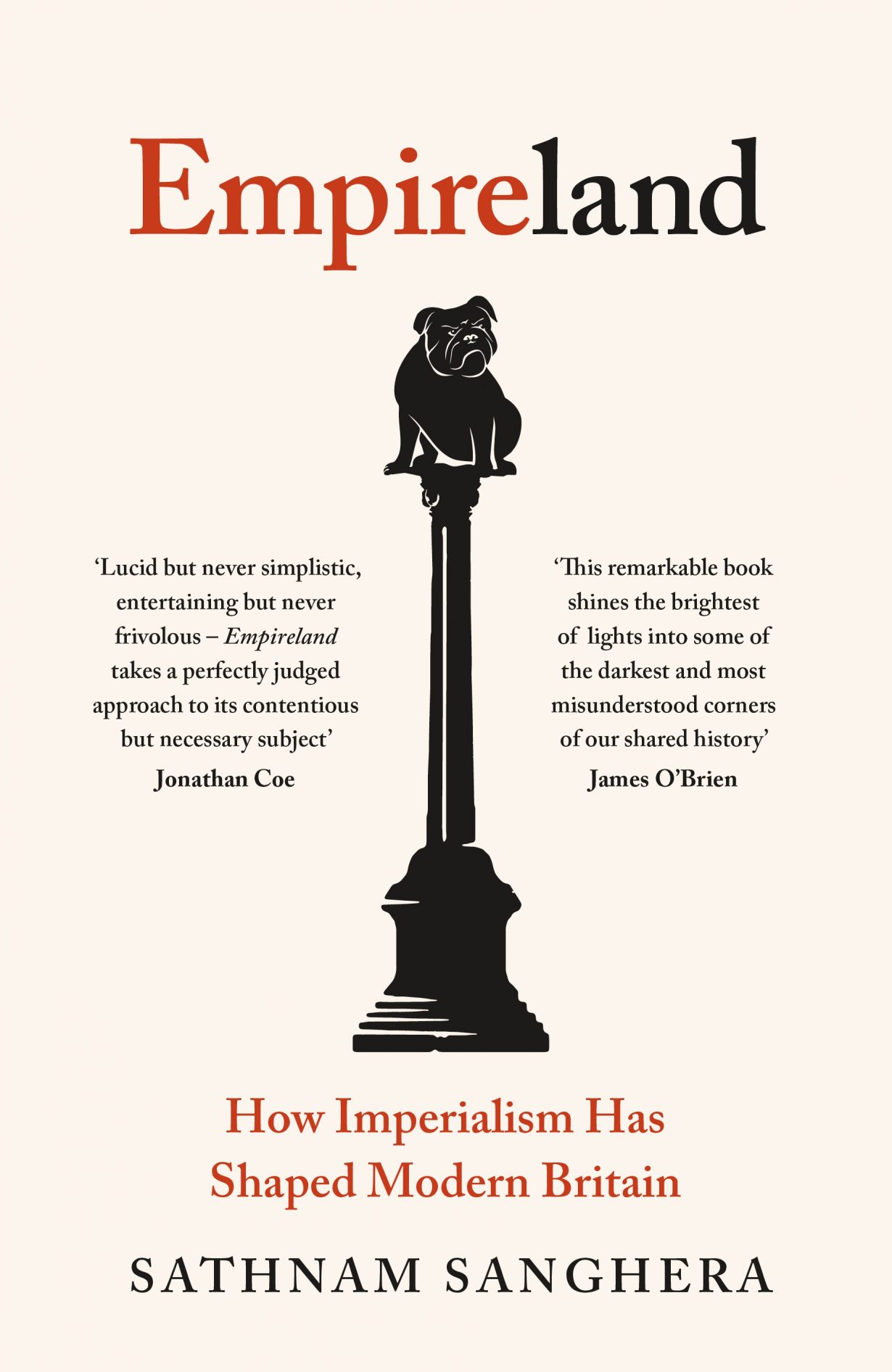The Times journalist’s new book examines how contemporary Britain remains shaped by the legacy of colonialism, and how it is acknowledged today

Empireland sets out to measure to what extent contemporary Britain remains shaped by the legacies of Empire and colonialism, and to what extent that influence is acknowledged in Britain today. The answer to the second is simple: generally speaking, it isn’t. Despite, as Sathnam Sanghera points out, recent waves of statue-toppling, institutional renaming and corporate apologies in the UK. The answer to the first is more complex.
Sanghera, a Cambridge-educated journalist of Sikh Punjabi heritage born in Wolverhampton, concedes that he is approaching his subject – surprisingly given his ethnic background; unsurprisingly given his British education – as something of a novice. For large parts of the book this allows him to project himself as a sort of everyman offering up a reader’s digest of colonial history (a synthesis of sources readily available, as the author points out, to those who chose to look for them) and the various atrocities (slavery included) it encompasses. Yet what makes this book truly interesting – and without doubt allows the author to develop a more complex understanding of the effects of Empire on Britain today than his everyman persona would suggest – is Sanghera’s inclusion, and seemingly honest assessment, of his personal position, as a British Sikh, within all this. To put it very crudely, he has one foot in each of the camps of coloniser and colonised. Proud of being British, yet subject to a fair degree of ‘Paki bashing’. ‘I can’t help feeling that I’m on a similar journey [to that undertaken by India’s Harrow- and Cambridge-educated first prime-minister, Jawaharlal Nehru], that in embarking on this project I’m making an effort to decolonise myself,’ Sanghera confesses.

So while Empireland traces the ‘toxic mixture of nostalgia and amnesia’ that allows the rhetoric and psychology of the imperial British mind, its distrust of experts and cleverness, its attitude of exceptionalism and, of course, its blindness to its enduring racism (both casual and institutional) to persist, in some ways unchanged since the Empire’s heyday (and which has led, in Sanghera’s view, to Brexit, among other things), it doesn’t shy away from examining the extent to which some colonised peoples (Sikhs among them) collaborated with their colonisers, or enabled the Empire, casually at times, to expand. It takes a measured approach in its analysis of the economic benefits Britain gained from its colonies. And attempts to untangle actions of Empire that were to one degree a result of unchecked individual impulses and to another the result of structural imperatives.
Amid all this, Sanghera reserves his biggest critique for Britain’s education system, which neither incorporates any serious study of Britain’s imperial past, nor reflects the inclusive, multiracial society that Britain today so likes to project. ‘The most serious and painful omission of my education was that during the years of being taught about world wars and sitting through endless remembrance services, no one cared to tell us, a radically diverse student body, that our people were there too,’ the author asserts while reflecting on his time at Wolverhampton Grammar School. Indeed, had he been made aware of the long history of ethnic minorities who were present and active in Britain’s social and political life before and during the centuries of Empire, Sanghera speculates, ‘instead of being fed the idea that my family and I were some kind of novel social experiment, interlopers in a white country, it would have made a huge difference to my sense of belonging’. And perhaps this point is key to Empireland: a serious reflection on Britain’s actions and relations to Empire might end up being an effective way of building things up as well as tearing things down.
Sathnam Sanghera, Empireland, Viking, £18.99 (hardcover)